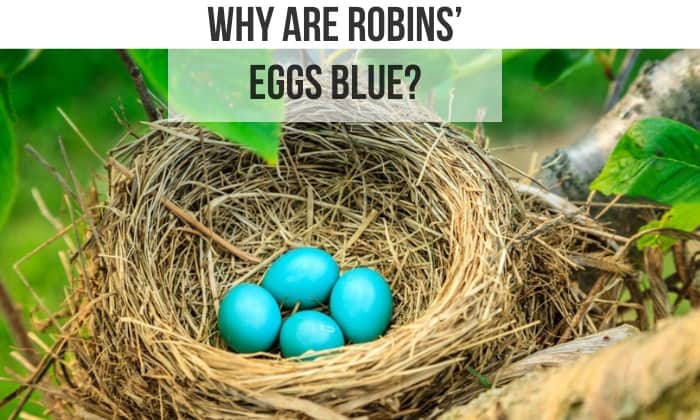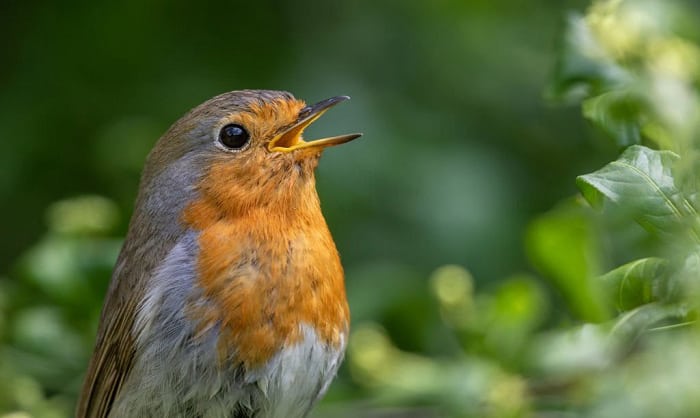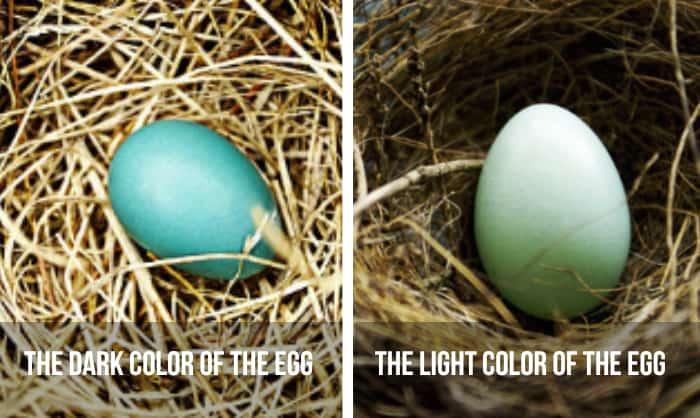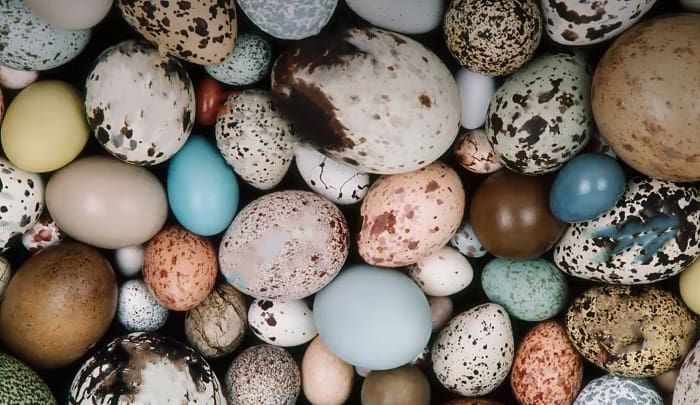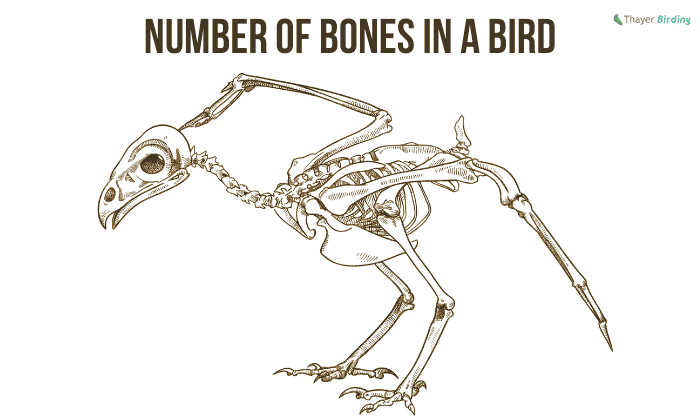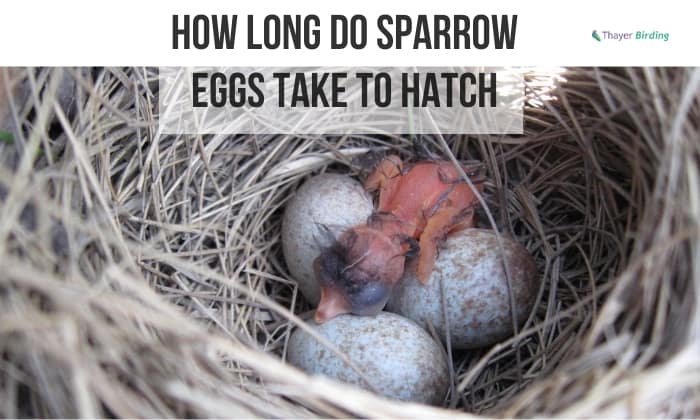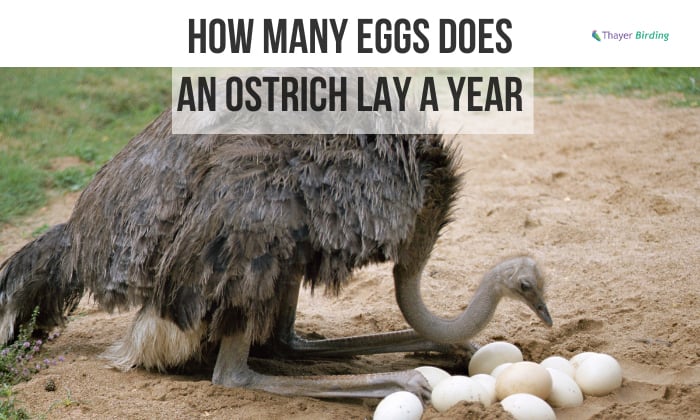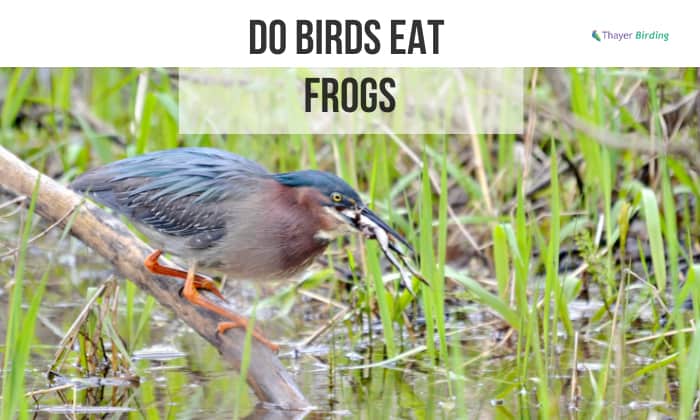Bird eggs come in all sizes and colors, from brown to white, pink and even briht blue. So, why are robins eggs blue? Because the mother robin produces a blue pigment called biliverdin when laying her eggs.
And as with everything in nature, color has a specific purpose. Scientists theorize that the blueness of robin eggs is for protection from the sun and an indication of health.
Table of Contents
Why Are Robins’ Eggs Blue?
What makes robin eggs blue? Robin eggs color is blue precisely because of a pigment called biliverdin. This pigment is produced by the female when laying the eggs.
Biliverdin is the same pigment found in blue butterfly wings, the bluish blood of many fish, and our bruises that turn green.
The pigment is also found in the placenta of dogs. This is the reason why, at times, puppies are born with a temporary blue-greenish tinge on their fur!
Not all robin eggs come out the same shade. Typically, the earlier eggs of the batch come out a more intense blue than the last few eggs. Smaller eggs also come out brighter than larger eggs.
But why do robins color their eggs blue? Here are two reasons:
Reason #1: Protection from the Sun
In general, the lighter the color of the egg, the more heat it reflects. In other words, the lighter the color of the egg, the cooler the chick stays inside. However, this pigment makes the egg more susceptible to the sun’s UV rays.
Darker eggs have the opposite problem: They are more protected from the sun’s UV rays but are more prone to overheating.
Therefore, the color of a bird’s egg is directly related to where they live. Birds that live in the open with lots of sunlight tend to lay lighter eggs, and birds in shaded areas lay darker eggs to maximize the available heat.
American robins build their nests in forests with moderate light levels, calling for a color that isn’t too dark or too light. Therefore, the species evolved to produce the blue color of robin eggs.
Reason #2: Indication of the Health of the Mother and Chick
In his 2012 study, Professor Montgomerie of Queen’s University observed male robins after robin eggs hatching and noted that male robins took better care of chicks that hatched from brighter blue eggs.
From this, he and his team deduced that what color eggs do robins lay is seen by males as signs of the mother and chick’s health. The brighter the egg’s blue, the higher the likelihood that both are stronger and healthier.
And, naturally, strong and healthy mates and offspring are preferred, especially in the wild.
Since the blueness of American and red robin bird eggs is so captivating, many other theories are flying around to explain their color. Below are two myths that have either already been disproven or simply have no proof yet:
Myth #1: Camouflage
Survival is the top priority for all animals in the wild. One handy tactic for that is the development of camouflage.
However, contrary to what some speculate, camouflage has nothing to do with what do robin eggs look like.
After conducting several studies, scientists have concluded that if parents wanted to camouflage their eggs, shades of brown would have been ideal.
More likely, the purpose of brightly colored eggs is for sun protection rather than concealment.
Myth #2: Protection from “Brood Parasites”
Certain species have a tactic of leaving their eggs in another species’ nest. They do this to pass on the responsibility of raising their young to another set of parents. These birds are known as “brood parasites.”
Cowbirds, in particular, are notorious for leaving their eggs among American robin eggs.
This has led some to theorize that another reason for the blueness of robin eggs is to make them distinct enough from the eggs of other birds. In theory, this will send a warning signal to robin parents that something is not right!
However, there have been no studies to prove this hypothesis.
Other Birds That Lay Blue Eggs
What bird lays blue eggs besides robins? Many birds lay blue eggs in NC and around the world; some of them are:
- Blue jays
- Mynas
- Dunnocks
- Bluebirds
- European starlings
- Catbirds
- Blackbirds
- Egrets
- Song thrushes
Frequently Asked Questions
Are robin eggs only blue?
American robin eggs are only blue.
However, European robins’ eggs are cream or speckled white, sometimes with a reddish smudge on the larger end.
What colour is a robin’s egg?
American Robin eggs are a distinct blue-green color.
The uniqueness and beauty of the shade were noticed by jewelry company Tiffany & Co., resulting in their trademarking the color and branding it “Tiffany Robin Egg Blue” or sometimes simply “Tiffany Blue”.
The color bears a Pantone code matching the year the company was founded: Pantone 1837.
Conclusion
Blue is an uncommon color to find in nature. So why are robins eggs blue?
Such eggs are made for survival, but not the usual kind: the blue is not for camouflage but rather for the chick’s protection from the sun.
Evolutionary theory aside, though, it’s nice to consider that robins’ eggs are blue simply because they make nature more beautiful.
Perhaps the cyan of robin eggs that we see around us can remind us of the wonder and luxury of nature and of being alive, much like it reminds us of a particular luxury jewelry brand.

George and I became friends after a birdwatching trip with our new group. And we have been enjoying every adventure together. When he told me the idea of establishing a site that shares our experiences and fun, I immediately agreed. After trials and errors, here we have Thayerbirding.


